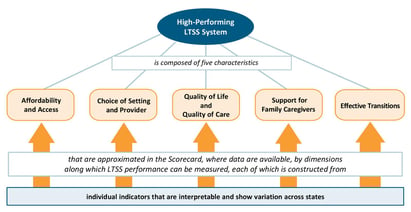I have an uncle who, during his professional career, was a very well respected city manager. Periodically he would come and visit us in Los Angeles. On one such trip during my high school years, we all went to dinner and he told us about a developer in his community who was planning to build a shopping center of some sort. My uncle was really excited about this project because it looked like it was really going to happen, and would be a great addition to his community.
He commented that he had seen many development projects come and go across his desk and they would get down the road a bit and the developer would pull the plug. Upon investigating the reason, he found the interest rate had changed a quarter or a half a percent and the project would no longer cash flow at the new rates.

That was the first time I remember learning about cash flow. I had known something about interest rates and how if you borrow money you are charged interest. I knew that if you put your money in the bank or owned bonds you earned interest. But cash flow was a different story. He went on to say in these projects “cash is king.”
At this time I had a job, I had been working for the Los Angeles Daily Journal running their dark room, developing film, and printing photos to be published in the news paper (great gig for a 16 year old). I had a bit of cash flow myself, but I never thought of my income as cash flow. And yet that is exactly what it is: Income = Cash Flow.
In financial planning, cash flow is key. It is the basis of all financial decisions. What is the total cash flow? How will this expenditure affect cash flow? Will this investment improve cash flow? Managing cash flow, for some families, can be incredibly difficult; it starts with the goal of self reliance.
Every dollar earned goes in some manner towards self-reliance, which is usually a goal most families have. In today’s world, a large part of that is earning an income. Self-reliance is the sum total of the ability to provide for the necessities of life for our family.
Spending money always has an effect on our cash position. Unchecked spending will destroy a family’s hard earned resources. I have seen families destroyed because one spouse will not give up the unchecked spending, racking up debt in the process. In counseling with these couples, and helping them understand the difference between needs and wants, can be a challenge, especially when they are set in their ways. I maintain faith that a person can change.
Needs vs. wants is a tricky thing, simply be cause people can alway justify their spending. After all that is what good marketing is about, “creating the need.” Marketers help us justify spending and perceived needs will always grow to whatever the income is, again justifying the spending. Every spendthrift clearly justifies their spending!
To get an understanding of the most basic needs, a starting place is to list all the places where money is spent, then prioritize that list based on the simple fact if they don’t have that item someone in the family will suffer physically (I realize physical suffering is extreme, but you have to start somewhere). While many people may think cable T.V. is a need, millions in the world get along just fine without it, food and water on the other hand are essential.
Growing a stable cash flow or improving cash flow is important to the family’s self reliance. As people manage the cash flow for asset growth, self reliance becomes more of a reality. Putting some money aside on a weekly or monthly basis from cash flow is critical to becoming self reliant. The only money that will be in the future is what is sent on ahead.
One of my financial planning professors use to say, there are only two things you can do with cash flow, to make things balance, increase income or decrease spending. Decreasing spending only works to a certain point, at some point cash flow or income must be increased. To the extent a person can increase or maintain a decent cash flow and keep spending in check they can enjoy the blessings of self reliance.
Self reliance does not only come to people of great wealth, it comes to people of all income strata; the basic level is simply to live on less than the cash flow that comes in. Diverting some of that cash flow as it comes, into some sort of savings vehicle is how to start becoming self reliant and properly managing income. It is true what George S. Clason said in his world famous book, The Richest Man in Babylon, “part of all I earn is mine to keep.” This is great advice - always keep some of what you work so hard to earn!
REMEMBER: "Nowadays peopel know the price of everythinga and the value of nothing." Oscar Wilde

 Years ago I bought a rental house with my older brother and his wife. Yes the three of us were business partners, imagine going into business with a family member! I owned half and they owned the other half. Well we all remained great friends and kept our family relationship in top order - while the partnership ended 20 years ago when we sold the house, I would do it all over again with them, they were the best business partners I could have had at that young age.
Years ago I bought a rental house with my older brother and his wife. Yes the three of us were business partners, imagine going into business with a family member! I owned half and they owned the other half. Well we all remained great friends and kept our family relationship in top order - while the partnership ended 20 years ago when we sold the house, I would do it all over again with them, they were the best business partners I could have had at that young age. 








 When I was in college I remember an employer, who had five incredible children, tell me that every child is born with a bank account. There is always a way to raise a child. Many years later I would have to agree. My wonderful wife and I are the parents of six children whom we love and are proud of. They bring more joy into our lives than we thought could be possible. We hope they live long healthy lives.
When I was in college I remember an employer, who had five incredible children, tell me that every child is born with a bank account. There is always a way to raise a child. Many years later I would have to agree. My wonderful wife and I are the parents of six children whom we love and are proud of. They bring more joy into our lives than we thought could be possible. We hope they live long healthy lives. 



